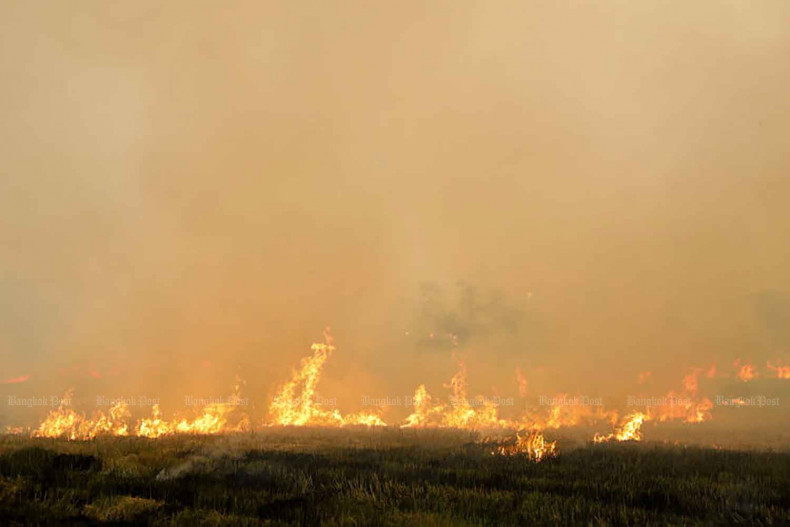Tags
‘3R Model’ for farming to help curb PM2.5 in Thailand
WRITER: Post Reporters

Thailand is looking to enhance farmers’ ability to rehabilitate land and replace some crops with alternative, high-value plants to tackle agricultural burning that causes PM2.5 dust pollution in lowland areas.
The Ministry of Agriculture and Agricultural Cooperatives and stakeholders from various international organisations in Thailand recently formed the “Friends of Thai Agriculture” alliance to support the transition towards climate-smart farming.
The alliance aims to reduce straw and stubble burning that results in carbon emissions in the agricultural sector while enhancing the livelihoods of farmers.
Permanent secretary Prayoon Inskul told a recent conference on “reduction of air pollution through avoidance of burning in agriculture” that the government is committed to enhancing farmers’ capacity via the so-called “3R Model”.
It aims to reduce burning, replacing short-lived traditional crops with high economic return plants, such as avocado and coffee trees, for which there is also market demand; and replacing non-irrigated lowland farming areas with alternative crops, such as maize, after the rice farming season to reduce high-land burning.
Maize is seen as the primary source of northern Thailand’s pollution problem, mainly due to farmers burning their maize stubble.
Agricultural burns elevated poor air quality levels in the North. During the haze season, Chiang Mai city regularly tops the list of the world’s worst cities for air pollution.
Timo Menniken, GIZ Thailand country director, stressed the importance of sustainable practices by enhancing mechanisation, innovative agricultural residue management and creating new value chains for biomass.
These farming practices can reduce agricultural burning while improving the livelihoods of farmers, Mr Menniken said. The concept aligns with the government-led 3R policy, he said.
GIZ recently introduced the “Piloting sustainable use cases of rice straw” project in Chiang Rai, he said.
Funded by Germany’s Federal Ministry of Economic Cooperation and Development, the project showed how agricultural residues could be transformed into valuable resources by promoting composting and the production of biodegradable food packaging from rice straw, he said.
These innovations could help reduce greenhouse gas emissions while enhancing the resilience of smallholder farmers to climate change, Mr Menniken said.
https://www.bangkokpost.com/thailand/general/2916097/3r-model-to-help-curb-pm2-5Published Date: December 9, 2024






